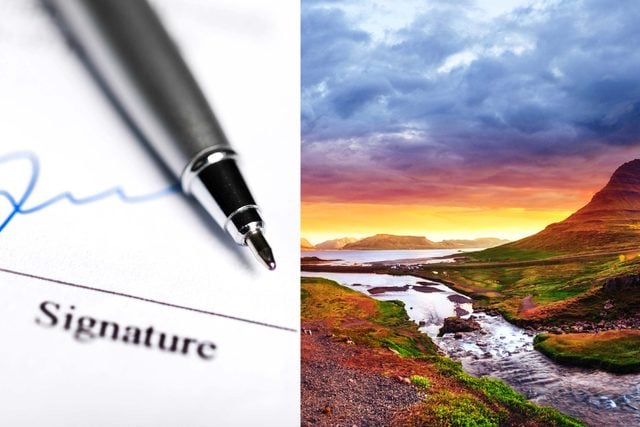Sorry, but Your Name Is Probably Illegal in Iceland
Updated: Apr. 03, 2017
If your name contains a 'c,' you're in trouble.
 If you’re visiting the notoriously beautiful, infamously affordable island nation of Iceland this year, do yourself a favor and pick up a phone book. The first thing you’ll notice is that all the entries are arranged by given name, not surname. That’s because, in Iceland, children don’t carry their father’s surname— they take on completely new last name based on their father’s (or occasionally mother’s) first name, plus the word “son” or “dóttir,” depending on their gender. In other words, viking celeb Leif Erikson literally was Erik’s son.
If you’re visiting the notoriously beautiful, infamously affordable island nation of Iceland this year, do yourself a favor and pick up a phone book. The first thing you’ll notice is that all the entries are arranged by given name, not surname. That’s because, in Iceland, children don’t carry their father’s surname— they take on completely new last name based on their father’s (or occasionally mother’s) first name, plus the word “son” or “dóttir,” depending on their gender. In other words, viking celeb Leif Erikson literally was Erik’s son.
The second thing you’ll notice is that a lot of those first names are identical—and there’s a weird reason for that, too. Unlike in the U.S., where you could take a class with Dr. Loki Skylizard or peruse a tabloid story about Apple Paltrow, Iceland firmly guards the given names that their citizens are allowed to take. In fact, there’s an official delegation appointed by the Ministry of the Interior to serve as gatekeeper of given names: The Icelandic Naming Committee.
Established in 1991, the Committee remains sole steward of the official list of names suitable for Icelandic babies. At the end of 2012, this list reportedly contained 1,712 male names and 1,853 female names. And while the list grows every year (parents are allowed to propose new names for a small application fee), the Committee is very particular about which names are suitable for integration into Icelandic culture. Any new submissions are judged on three main criteria: The name must contain only letters in the Icelandic alphabet, must be adaptable to Icelandic grammar rules, and must not cause the child any future embarrassment.
You might be shaking your head at that last stipulation, but it actually just came up in a ruling earlier this year. Applicants wanted to name their child Hel, possibly after Norse mythology’s ruler of the underworld with the same name. While Hel complies with Icelandic grammar and spellings, the Naming Committee agreed it could cause a lifetime of embarrassment for the poor little hellion. Other names rejected for this reason include Skessa (a female troll) and Þrjótur, meaning villain.
A handful of other stipulations exist, like prohibiting female babies from taking male names and vice versa. Naturally, this glacier of rules doesn’t sit well with many Icelandic parents. Even the former mayor of Reykjavik railed against the parameters as an “unfair, stupid law against creativity” when he was forbidden to name his daughter Camilla after her grandmother, as traditional Icelandic does not include a character for ‘c.’ Opposition to the Committee has grown stronger in recent years and a new bill was recently proposed to take away many of the more draconian criteria (including the gender rule, and the “embarrassment” consideration).
But, until then, would your name be illegal in Iceland? Check their database here to find out.